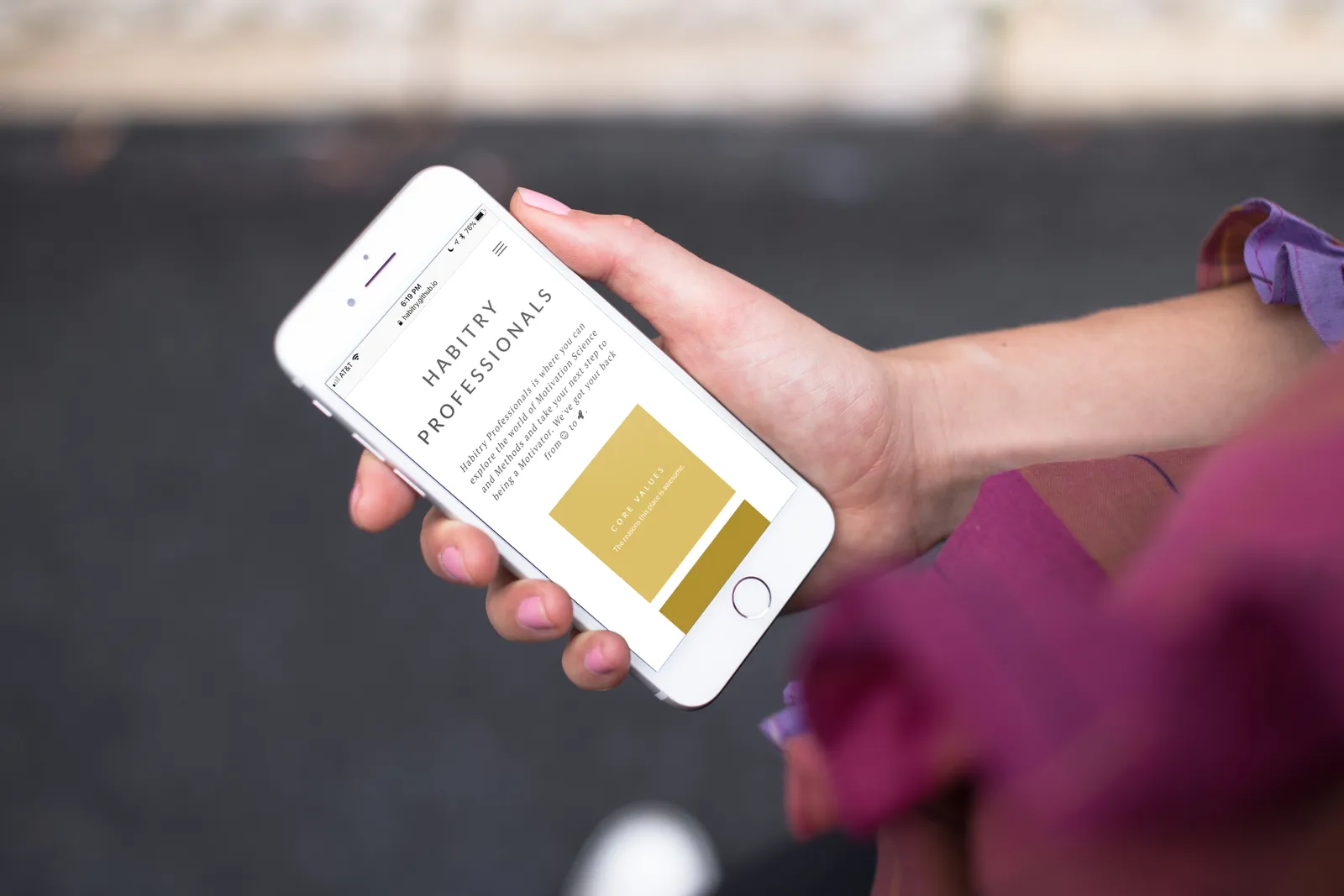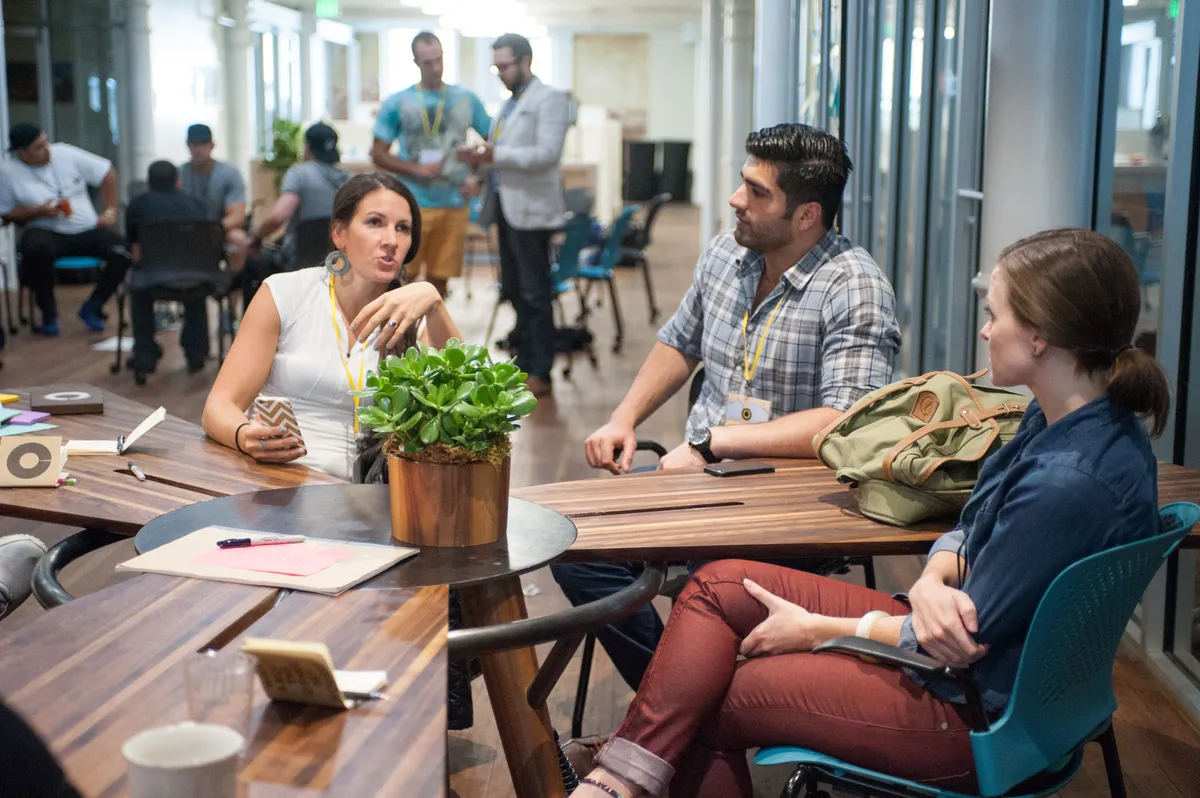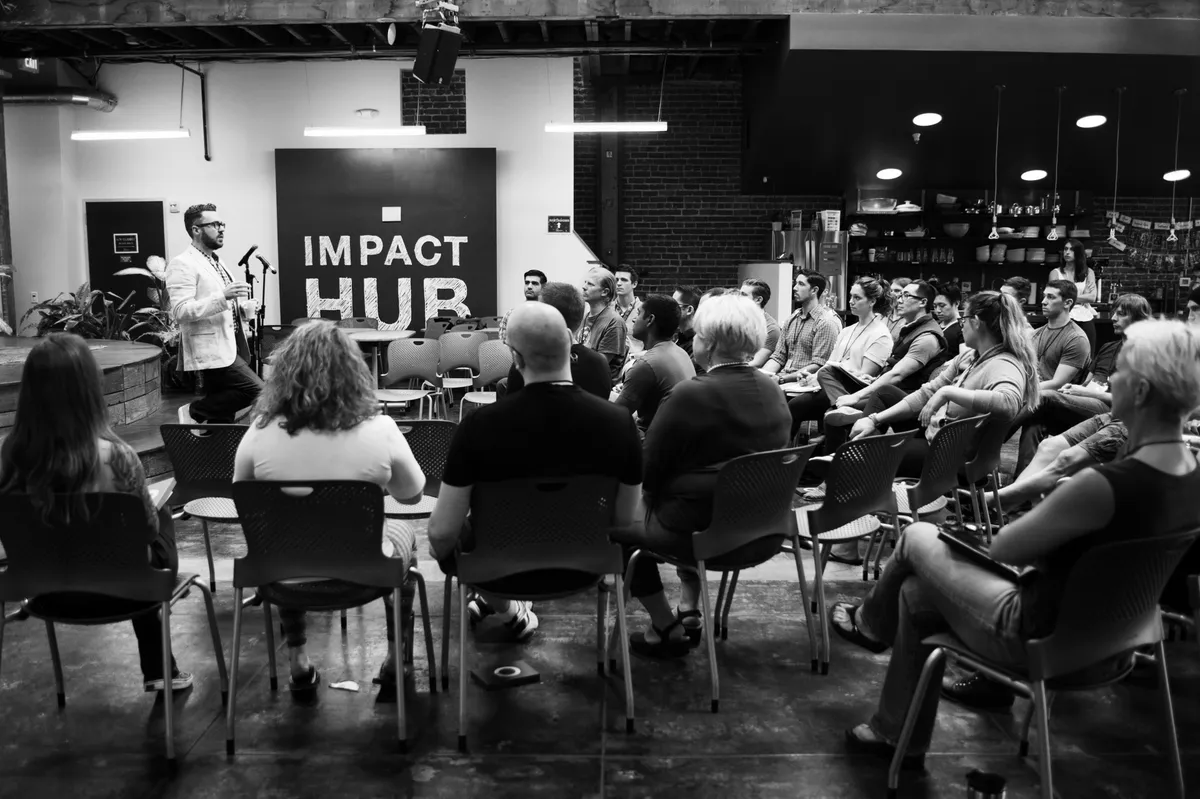Habitry Professionals
The first evidence-based, behavior change education platform for health coaches.
The first evidence-based, behavior change education platform for health coaches.

My Role: Co-Founder, Product Designer, Learning Designer, Front-End Developer
After launching Habitry iOS, coaches began to ask Habitry for a more comprehensive education product that would allow them to bring the behavioral psychology techniques they had been introduced to in the iOS app into real world settings.
Already supporting Habitry iOS, Habitry took a launch fast and build the wings in the air
approach on this project. This meant getting a front-end up first, then using off-the-shelf tools to make a webapp that could be adapted and iterated on.
This was also Habitry's first Learning Design product. We leaned heavily on the approach to Learning Design developed by Julie Dirksen and the Lens of Intrinsic Skill Atoms developed by Sebastian Deterding.
On the advice of Angel Investor Jesse Robbins, Habitry started a series of Unconferences — The Motivate Summits — as a cheap way to surface customer problems and workshop solutions.
These open, unscripted gatherings proved to be a fertile ground for exploring the non-technical approaches that health coaches were using, and the great lengths to which they were going to scale their businesses into the other 167 hours
a week they were not with their clients.
Once Habitry had customers using Habitry iOS, we also brought in those customers for interviews. These interviews highlighted the gaps between the skills that most coaches had, and the skills they wanted to learn.

Using notes from this process, we developed personas of the coaches to guide us through the ideation process. And the first thing that stood out to us was that health coaches did not have an alternative for long-term skills education. Most coaches got a certification, then no other feedback on their skill development for the rest of their career.
So user stories were going to be long if we wanted them to be realistic.
Very long.
This complete lack of feedback focused our empathy and gave us direction about what health coaches wanted to Be
,Do
,Have
, and Feel
when working in the industry for 1, 2, 5, 10, or 20 years.
We then tested these theories out at the next Motivate Summits.

Thing
Once we had a basic idea of what skills our customers wanted to learn, we started looking at the ways they needed that education delivered to them.
Soon we knew our product would have to:
UI iteration started out very LoFi with whiteboards, then pen and paper.
As ideas were validated, Stevo began graphic design using Keynote which let us show mock up screens to customers.
We skipped Sketch this time and quickly created a static site in order to test potential content. Stevo built the site and templates using Jekyll, which let the team contribute content in markdown.
Once the static site was live, Stevo tested the viability of the concept by offering it for sale with no backend-enabled features. It was just static pages, but it sold well enough for him to start figuring out how the hell he was going to allow customers to start creating their own content.
At the time Habitry Professionals was launching, Stevo was spending 2 weeks a month on the road running Motivate Summits or speaking at health-coaching conferences to sell Habitry iOS. Stevo also had no backend engineering experience and no time to learn it. So he hacked together an open-source forum software with a custom Jekyll front-end as an MVP. It actually worked well enough that he didn't have to replace it for the entire year Habitry sold the product.
Report Cards
Since health coaches received no feedback about how to improve their coaching skills in real life, Stevo realized pretty quickly that this was going to be a killer feature for both retention and customer satisfaction.
In order to figure out what kind of feedback the coaches needed, Stevo and Omar created report card
templates that could be easily A/B tested with different cohorts of health coaches. These were intially made in Keynote, but once Stevo had designed the website, they were able to automatically generate the static pages. Using data from the forum system, Omar would test out various metrics and feedback styles to see what coaches found the most motivating.
Within a month, the team had developed an algorithm for analyzing and delivering motivating feedback that would become the core of Habitry's product and content auditing tools.

In 2016, Habitry sold Habitry Professionals to Lift the Bar in the UK. It is now the largest, evidence-based behavior change education system in the UK and part of the largest experiment in autonomy-supportive education in the world.